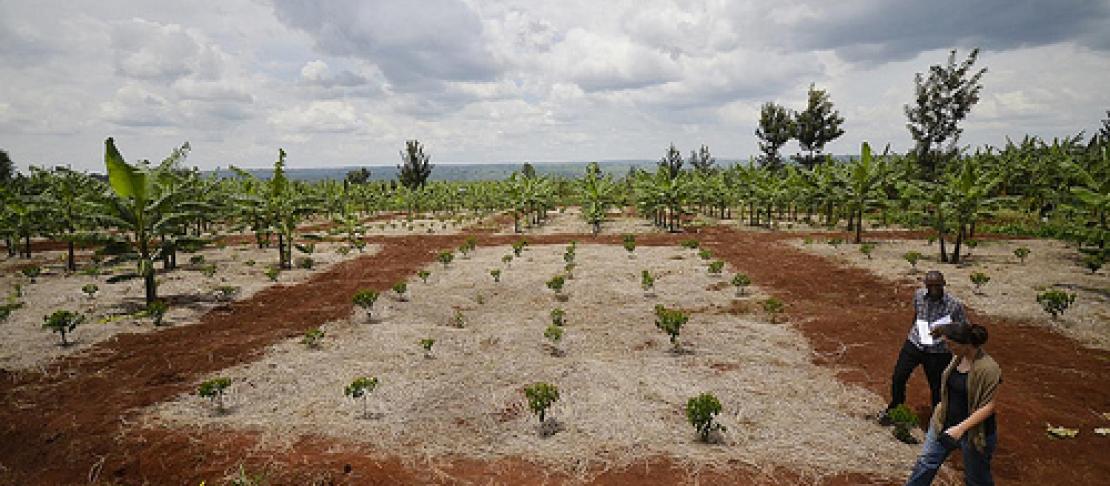Climate-smart agriculture gains momentum on road to Durban

With the UN Climate Conference in Durban just around the corner, the idea that agriculture plays an enormous role in climate change adaptation and mitigation is gaining momentum. Next week, the Commission on Sustainable Agriculture and Climate Change will publish its recommendations for policy makers on what changes and actions are needed to help the world achieve food security in the face of climate change. Commission coordinator Christine Negra recently spoke on camera about changing the game for the food system in the face of climate change”.
In the light of this, different media channels are also focusing their attention on agriculture. Alertnet recently asked “Is there enough food for a world of 7 billion?” reviewing food security in a world with increasing population and weather related disasters. In the article, CGIAR Climate Director Bruce Campbell discusses how to improve farmer’s yields while at the same time adapting to climate change.
Dr Campbell suggests organic farming might play an important niche role in helping poor farmers survive weather shocks and climate change. Even though it is more labour-intensive, organic farming has potential to generate extra income for smallholders, as crops sell at a higher market price, while also increasing yields, and maintaining natural irrigation systems.
Another approach to improve the situation for smallholder farmers is through providing access to climate information. Says Dr. Campbell, “At the moment yields are way below the potential yields because farmers don’t have access to vital weather information”. These days, farmers don’t know when to plant, due to unpredictable weather, leading to failed crops.
No Agriculture, No Deal in Durban
For our partner the Food, Agriculture and National Resource Policy Analysis Network (FANRPAN), getting agriculture on the Durban climate change agenda is key. The network has adopted the “No Agriculture, No Deal” position, with FANRPAN’s CEO Dr. Lindiwe Sibanda saying “we want African negotiators to come out of this gathering with a responsible, binding climate change deal on agriculture”.
Sorting out what is really new with Climate-smart agriculture
New Agriculturalist recently asked the research community if the concept of climate-smart agriculture is a truly useful term for stimulating and guiding change... or if it’s just another catchphrase with a short shelf-life.
Bruce Campbell disagrees with suggestions that it’s a meaningless fad: “It will include much more attention to issues that have not been so high on the development agenda in the past: weather advisories; seasonal forecasting; climate-based insurance products; and carbon markets”.
Food and Agricultural Organization representative Alberto Sandoval adds “CSA practices propose a transformation of agriculture, in the way we grow food and treat the environment in a changing climate. It outlines ways to preserve and enhance food security by changing policy and agricultural production systems”.
This indicates that CSA is more than just business-as-usual, contributing to climate change adaptation and mitigation while adding value through the integration of the two concepts. Read the full range of views on CSA.
Agriculture has to be the focus after Durban as well
To further ensure that agriculture receives attention during the Durban Climate conference, CCAFS and partners are hosting Agriculture and Rural Development Day (ARDD) on 3 December. ARDD will bring together several hundred policy makers, farmers, scientists and development experts to discuss the urgent need for rural people in developing countries to play a greater role and receive stronger support in climate change adaptation and mitigation. There is a need for policy makers, researchers, farmers and donors to further focus attention and investments to agriculture and climate-smart practices, both prior to COP17 and after the meeting. It is important that the momentum gained for agriculture survives Durban and continues as well as early actions for improving agricultural practices is implemented, this in order to help smallholder farmers ensure food security, improve livelihoods and adapt to climate change. Registration is now open!